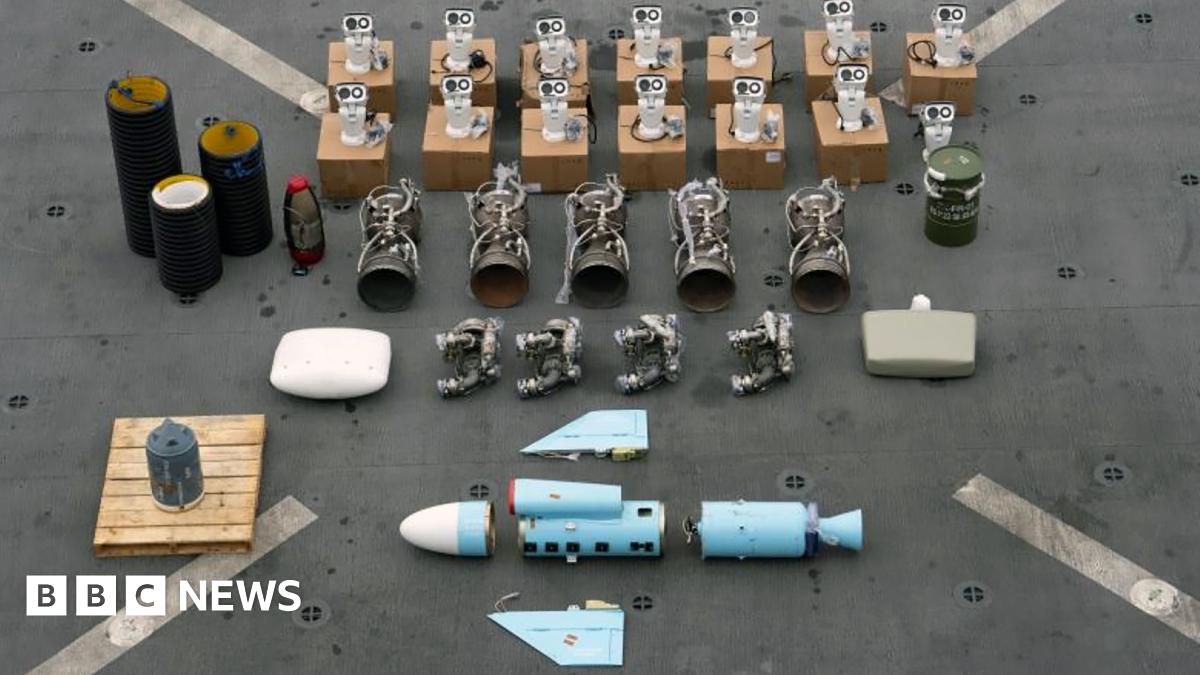William Freer, from the UK think tank Council on Geostrategy, told BBC News that while most of the Houthi attacks have involved smaller weapons, the components found on Pahlawan’s ship are “a lot more complicated and can pack a lot more punch”.
“Very quickly, most shipping companies decided to redirect all their vessels, where possible, around South Africa rather than transiting through the Red Sea.”
This lengthy detour adds about 10 to 12 days of sailing time to each trip, and extra fuel, which previous analysis has estimated to cost companies about an extra $1m (£748,735) per round trip.
Mr Freer added that the impact on commercial shipping has continued to this day.
“Within about two months of the initial attacks [in October 2023], shipping transiting through the Red Sea had dropped by about 60% to 70%, and it has stayed at that level ever since, even with the ceasefires,” he told us.
Even though Houthi strikes are now less frequent, he added, there are still “just enough attacks to convince shipping companies it is not worth running the risk of returning” to the Red Sea route.
Iran has been accused by the US, UK, Israel and Saudi Arabia of smuggling missiles and other weapons to the Houthis by sea, in violation of a UN Security Council resolution since the armed group ousted Yemen’s internationally-recognised government from much of north-western Yemen 10 years ago, sparking a devastating civil war. Iran denies this.
On 5 June this year, Pahlawan was found guilty of conspiring to provide material support and resources to terrorists; providing material support to the Iranian Islamic Revolution Guard Corps’ weapons of mass destruction programme; conspiring to and transporting explosive devices to the Houthis, knowing these explosives would be used to cause harm; and threatening his crew.
“Pahlawan was not only a seasoned smuggler,” prosecutors said, “he knew what he was smuggling and its intended use.”
In a final plea to the court for leniency, Pahlawan’s lawyer wrote that life for Pahlawan’s wife had long been estranged from her family because of her marriage to him, and that since his arrest, her and her child’s lives had become “extremely difficult and harsh”.
“Since the jury verdict, Mr Pahlawan’s singular focus in their telephone conversations is the wellbeing of his family,” his attorney said. “He does not talk about himself or his fate. He cries with worry over what will become of his wife and child.”
But the court ruled that his high sentence was “appropriate due to the nature and circumstances of the offense and the history and characteristics of the defendant”.

